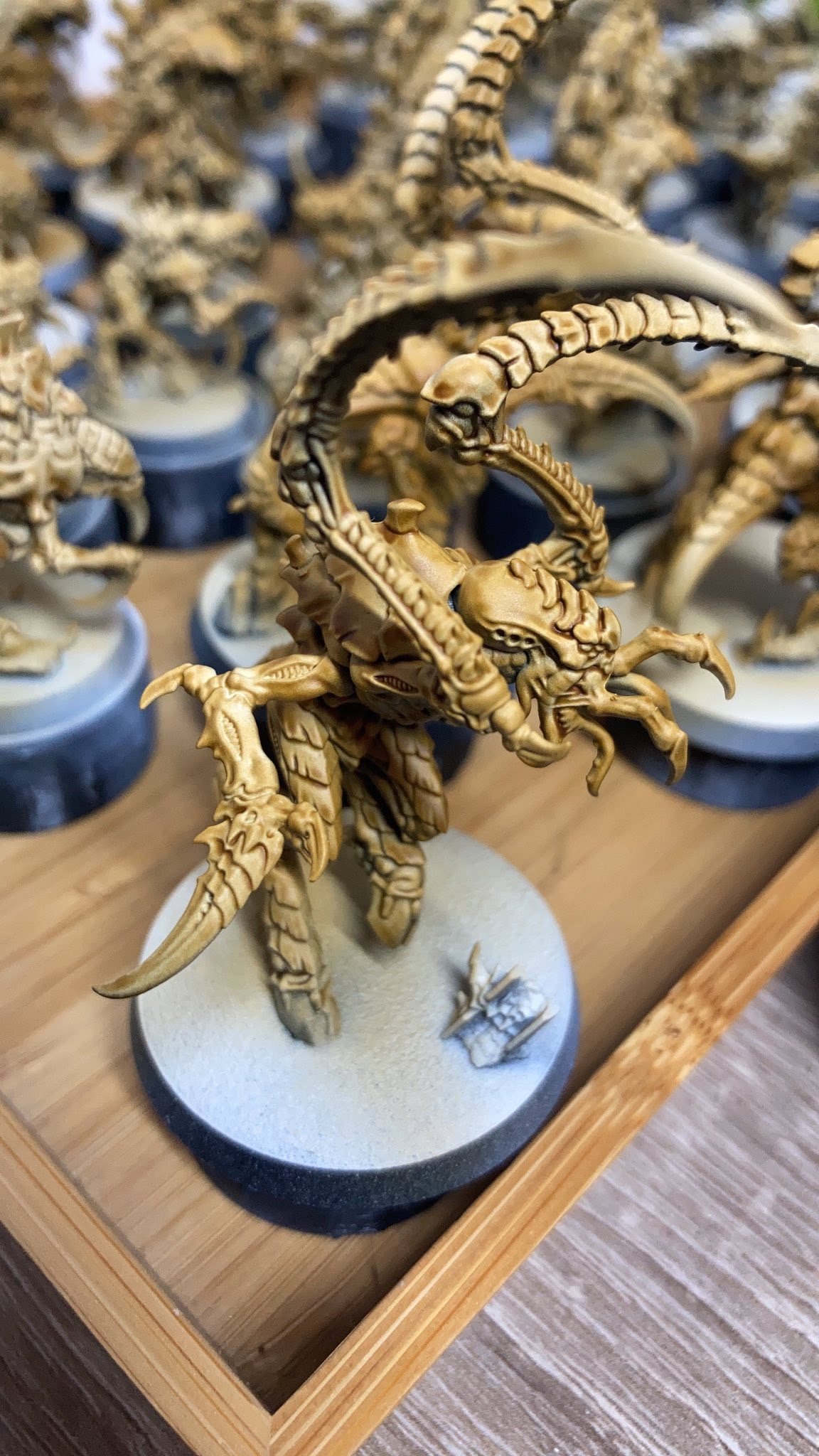Thats actually pretty nice!
Warhammer 40k
A community dedicated to the universe of Warhammer 40k, a tabletop setting in the far, distant future.
This is a general community for 40k miniatures, art, lore discussion, and gameplay discussion.
Rules
- Keep it civil.
- No memeposts/shitposts. Memes are great but direct them to grimdank.
- Please mark any posts containing realistic nudity or realistic excessive gore/violence as NSFW; this rule mainly applies to cosplay and realistic drawings rather than miniatures. Being that 40k is inherently violent, this is a judgement call, and mods may occasionally request posters add tags.
- No political or social cause agenda pushing.
Helpful Links
- 10th Edition Rules
- iOS Warhammer 40k App
- Android Warhammer 40k App
- 3rd party site for running Kill Team games
Related 40K Communities:
Other tabletop hobby communities:
I have started painting my test tyranids from Leviathan and I'm going with a similar scheme, at least for the skin portion. Do you get much from the zenithal priming that the contrast doesn't do already or is it to double down on the contrast effect?
On a recent project, I simply primed white, and some hard to reach parts of the model remained white, which I really disliked, because I spent a lot of time teaching these unpainted parts.
Zenithal makes the model white, while still leaving the hard to reach parts black, which registers to the eye as shadow and gives, in my opinion, a better result with less efforts. Contrast also makes the transition between white and black (light and shadow) really smooth and natural, even on brighter colours.
That looks awesome!
Looks great! I just discovered this too a couple weeks ago (albeit using Army Painter speed paints). I always struggled with brush stroke lines with speed pains but the air brush made great work.
Dang that looks good! I love contrast in general, really made painting a lot more fun for me
That looks really good, I'm definitely going to give this a shot!
Yeah, it actually works kinda like a glaze if you airbrush a thin layer, or you can do like you did, spray a bit thicker and it'll still do the contrast effect. But that doesn't work too well with some colors
How did it flow? Did you use any thinner or flow improver?
The flow was great with simply 20% thinner and no flow improver (I was afraid it would break the surface tension and ruin the contrast effect).
The fact that I did the entirety of leviathan in one batch probably helped limit the drying time in the airbrush, and prevented clogging the airbrush.
Man, this sounds great. Would you mind sharing how you did the entire process?
All 4 steps done with an airbrush: Prime Vallejo Black, then Zenithal Vallejo Grey, then one spray directly from above with Army painted white (any white should do). Finally, I just sprayed Skeleton Horde until it started pooling, at which point I stopped to avoid over spraying.
